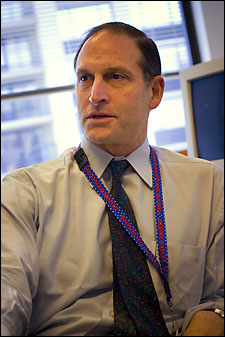Obama chooses a policy wonk to head health IT


Dr. Blumenthal has been director of the Institute for Health Policy at Massachusetts General Hospital and a professor of health care policy at Harvard.
As an Obama campaign advisor last year he co-authored a report which said health reform could be paid for by rolling back the Bush tax cuts on high earners.
The good news is he's a policy expert and not a vendor. The bad news is he's a policy expert and not a technologist. He is a renowned health IT advocate who knows his way around bureaucracies but he is not a geek.
This means Blumenthal has not expressed a view on open source vs. proprietary software. He also hasn't gotten his hands dirty in the health IT trenches.
But he does have a good 20,000 foot view, as evidenced from this Harvard Gazzette article in 2006, from which the picture above was taken. In it he supports health reform done from a state and city level.
Early reaction to the appointment appears positive.
John Halamka, who writes the Geekdoctor blog and knows Blumenthal from Harvard, writes "David will ensure the stimulus effort gets off to a great start."
Halamka believes that Robert Kolodner, who had been health IT coordinator under President Bush, will stay on to manage stimulus details.
Danny Weitzner quoted Blumenthal in a January piece about the President's health care plans, saying IT grants should go to inner-city and rural hospitals, as well as small practices, while most health IT money should go to incentives for improving the quality of care.
Blumenthal seems to also know where we are, having estimated in 2007 that only 4% of doctors have access to fully-functioning, effective electronic health records (EHR) which they know how to use.
Our own Richard Komen quoted Blumenthal in 2006 as saying that at some point a "tipping point" is reached when it comes to EHR use, but we don't yet know where that point is.
So what we have is someone who knows what needs to be done rather than someone who knows how to do it. He is open to suggestions on that, and will doubtless get plenty of advice.